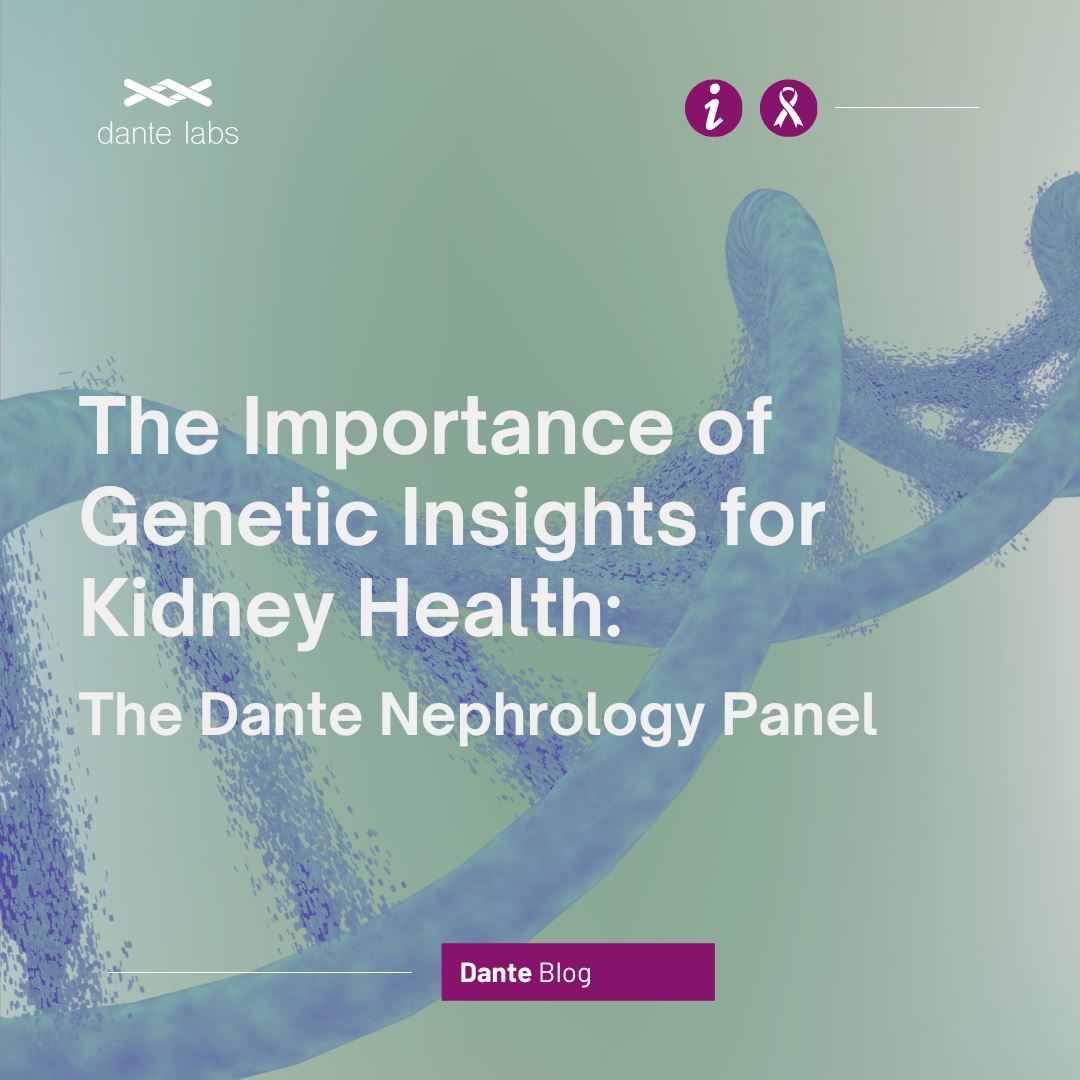
The Importance of Genetic Insights for Kidney Health: The Dante Nephrology Panel
Share
Introduction
As we mark World Kidney Day, a significant moment dedicated to raising awareness about kidney health, we embark on a journey to explore the intersection of genetics and nephrology. The complexities of kidney disorders underscore the critical need for advanced genetic testing solutions like Whole Genome Sequencing and the Dante Nephrology Panel. Join us in delving into the profound impact of genetic insights on kidney health and the transformative potential they hold for individuals worldwide.
Understanding Nephrology Conditions
Your kidneys are vital organs that filter fluid and waste out of your blood, and you cannot live without them. Diseases that lower your kidney's ability to clean your blood can affect only the kidneys, or harm other parts of your body too. These health conditions can cause chronic kidney disease or kidney failure.
Healthy kidneys:
- Keep a balance of water and minerals (such as sodium, potassium, and phosphorus) in your blood;
- Remove waste from your blood after digestion, muscle activity, and exposure to chemicals or medications;
- Make renin, which your body uses to help manage your blood pressure;
- Make a chemical called erythropoietin, which prompts your body to make red blood cells;
- Make an active form of vitamin D, needed for bone health and other bodily functions
- Filter all the blood in your body every 30 minutes.
The Role of Genetics in Kidney Diseases
There are over 60 known inherited kidney diseases, which range from common conditions to very rare diseases. Some inherited kidney conditions include:
- Autosomal dominant polycystic kidney disease (ADPKD), the most common type of inherited kidney disease. In the United States, about 1 in every 800 people have ADPKD and it is the fourth leading cause of kidney failure. It is found equally in men and women and causes about 5% of all kidney failure.
- Alport syndrome, caused by changes (mutations) in collagen protein genes. Collagen is an important protein that is needed to maintain normal function in the kidneys. People with Alport syndrome have tiny blood vessels in the glomeruli of the kidneys that are damaged, which means they cannot filter the wastes and extra fluid produced by the body. Many people with Alport syndrome also have hearing problems and abnormalities with their eyes due to the changes in their collagen genes.
- Nephronophthisis (NPHP), an autosomal recessive inherited disorder characterized by inflammation and scarring that impairs kidney function. These abnormalities can lead to: increased urine production; excessive thirst; general weakness; extreme tiredness. In addition, people with NPHP develop fluid-filled cysts in the kidneys, usually in an area known as the corticomedullary region. NPHP often leads to kidney failure, a life-threatening condition that occurs when the kidneys are no longer able to filter fluids and waste products from the body effectively. There are at least 20 genetic variants of NPHP that have been identified, with more pending confirmation. These variants are caused by genetic mutations that occur within different genes. For example, NPHP1 is caused by mutation in the nephrocystin 1 gene.
- Gitelman syndrome, an autosomal recessive inherited disorder which occurs when a person receives an abnormal copy of the SLC12A3 or CLCNKB genes from each parent. Gitelman syndrome is a kidney function disorder that causes an imbalance of charged atoms (ions) in the body, including ions of potassium, magnesium, and calcium.
Embracing Proactive Kidney Health
Genetic mutations play a pivotal role in shaping nephrological conditions, influencing kidney function and metabolism. The complexity of kidney disorders underscores the importance of genetic analysis in identifying variants that impact disease progression and severity.
Nephrology, the specialized field of medicine focused on kidney care, addresses a wide array of conditions that affect kidney function. By unraveling the genetic underpinnings of nephrological disorders, we pave the way for personalized healthcare approaches that can revolutionize the management and treatment of kidney-related conditions.
Whole Genome Sequencing and Dante Nephrology Panel
Whole Genome Sequencing stands at the forefront of genetic technology, offering a holistic approach to unraveling the intricacies of an individual's genetic makeup. By analyzing the entire DNA sequence, Whole Genome Sequencing provides unparalleled insights into genetic variants associated with kidney disorders, guiding personalized treatment strategies and empowering individuals to take proactive steps towards managing their kidney health.
Nephrology panel, based on WGS, is a comprehensive panel that tests for genetic variants associated with a wide range of kidney disorders, including cystic kidney diseases, glomerular diseases, and tubular disorders. Kidney disorders are caused by mutations in genes involved in kidney function and metabolism, and this panel tests for genetic variants that are known to affect these processes.
This panel is designed for individuals with a family history of kidney disorders or individuals with symptoms of the conditions, such as proteinuria, hematuria, and renal failure.
- Based on Whole Genome Sequencing
- More than 275 genes analyzed
- Investigates SNP and Indel mutations up to 150 bp
List of main conditions:
- Kidney stones
- Nephritis
- Alport syndrome
- Gitelman syndrome
Conclusion
On World Kidney Day and beyond, let us embrace the transformative power of genetic insights in advancing kidney health. Through Whole Genome Sequencing and the Dante Nephrology Panel, we embark on a journey towards personalized healthcare solutions that empower individuals to take control of their kidney health. By championing genetic wellness and proactive healthcare initiatives, we pave the way for a future where genetic insights revolutionize the landscape of kidney care, fostering improved health outcomes and quality of life for all.
